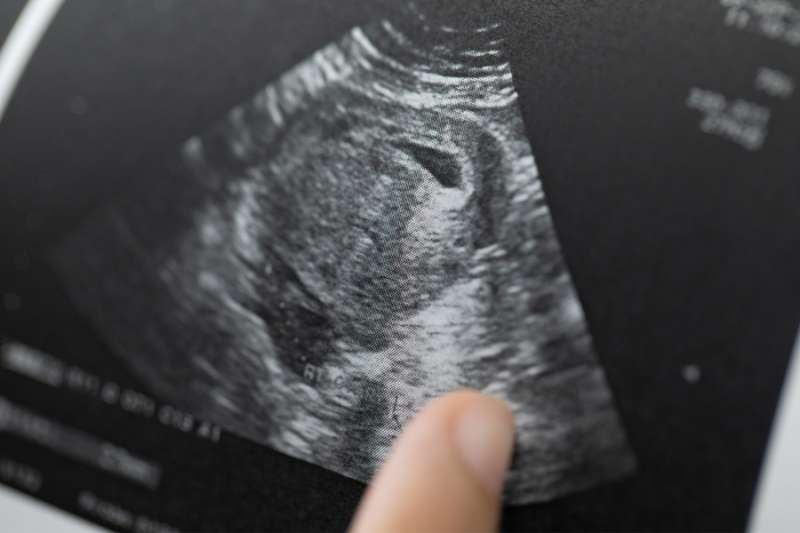Several states are considering new abortion measures, as the nation-wide trend of legislatures passing new laws to restrict or entrench access to abortion continues.
On May 14, Michigan lawmakers are set to vote on a bill to prohibit an abortion technique called “dilation and extraction.”
This technique is used during the second trimester of a pregnancy. Last year, over 1,700 abortions in Michigan were carried out using dilation and extraction.
Should it pass, the bill is unlikely to be signed into law by Gov. Gretchen Whitmer (D), who supports abortion rights. Other states who have attempted to ban this abortion method have seen their laws overturned by the courts.
In Rhode Island, legislators are attempting to pass a bill expanding and confirming access to abortion. The measure, similar to laws already passed in New York and Vermont, would codify near-unrestricted access to abortion at any stage of pregnancy.
Unlike in New York and Vermont, where such measures passed virtually unopposed, Rhode Island has also seem concerted efforts to introduce restrictions on abortion past the point of fetal viability.
“I cannot support post-viability abortions that are based on undefined ‘health’ reasons and would permit very late term, up to date of birth, abortions. It simply goes too far,” said state Sen. Stephen Archambault (D).
Archambault described himself as someone who is both pro-choice and in favor of “reasonable restrictions” on abortion once the pregnancy has reached viability.
“Simply put, viability means when a fetus is so close to fully formed that it is likely to be able to survive outside the womb — if born. Reasonable restrictions are permissible under Roe v. Wade as currently interpreted by the US Supreme Court,” he added.
Archambault intends on introducing an amended piece of legislation that will include these safeguards.
Bishop Thomas Tobin of Providence, said on Twitter Tuesday that he is “Still counting on the Sen. Judiciary Committee to reject the radical pro-abortion bill being considered today.”
“It’s undeniable that it goes way beyond Roe v Wade. The vast majority in R.I. oppose late term abortions, the termination of viable children,” he added. “Pro lifers-stay strong!”
In Alabama, the state Senate is expected to vote during the evening of May 14 on the Human Life Protection Act. The bill would make abortion at any time during a pregnancy a felony crime, except in narrowly defined cases where the woman’s health would be at risk.
The measure arrived in the senate after passing a vote in the house by a margin of 74-3. Some politicians have said they are hesitant to support the bill, as there is no exception for abortion in cases of rape or incest.
State Rep. Terri Collins (R), the bill’s sponsor, said of the measure that it “says that baby in the womb is a person.”
Unlike other state bills, which ban abortion at a certain point of a pregnancy--such as the detection of a heartbeat or at the 20-week mark of a pregnancy-- the Alabama bill would outlaw abortion entirely. Doctors who perform abortion would be charged with a Class A felony and could face between 10 years and life in prison.
As a result of the 1973 Roe v. Wade Supreme Court decision, abortion is considered to be a constitutional right through the point of fetal viability; about the 22nd week of a pregnacy. Laws that restrict abortion prior to this point are generally found to be unconstituional.
Supporters of the Human Life Protection Act hope that any subsequent legal challenge to the law could be appealed all the way to the Supreme Court, which could revisit the Roe decision.
The Supreme Court has been reluctant in years past to consider laws that would influence abortion policy in the United States, but there are several pending cases that could be considered in the upcoming future.
In addition to the aforementioned laws banning dilation and extraction abortions, an Indiana law that banned abortion based off of sex, race, or disability has also been overturned by lower courts, and laws in four states have banned abortion prior to the 20th week of pregnancy.
It is unclear as of now if the court will consider any of these cases.
Meanwhile in Georgia, state lawmakers say they are unconcerned about the effects of a planned “boycott” of the state by the entertainment industry. Georgia, which recently outlawed abortion after the detection of a fetal heartbeat, was threatened with boycotts from actors and producers. So far, only three production companies have announced they will not be filming in Georgia.
None of the three had previously filmed in the state.

